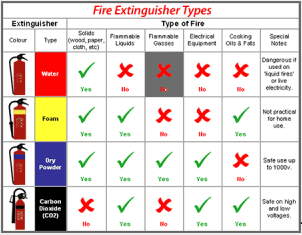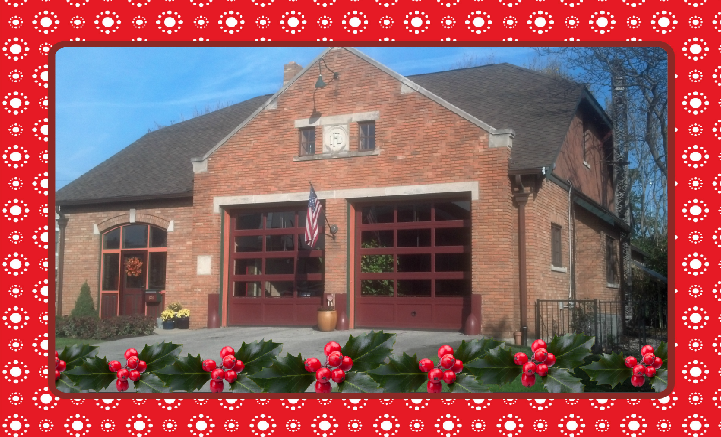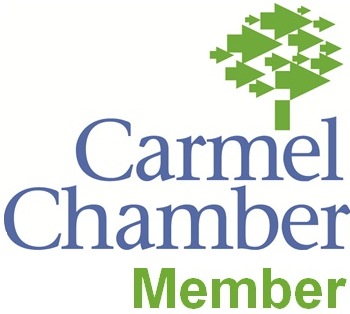Thanksgiving Deep Fried Turkey’s and Your Fire Extinguisher
 This is the time of year in America when everyone thinks of the fastest way for them to finish cooking Thanksgiving dinner to feed their whole army of family members. It’s a time to share what your thankful for and give praise to the ones that died throughout history in America to make this great holiday.
This is the time of year in America when everyone thinks of the fastest way for them to finish cooking Thanksgiving dinner to feed their whole army of family members. It’s a time to share what your thankful for and give praise to the ones that died throughout history in America to make this great holiday.
We thank the Indians my ancestors for giving the pilgrims the ability to eat and not starve to death when they first settled this great nation. The pilgrims for taking the things they learn about cultivation and passing it on to their descendants who created the farming nation america is today. The pilgrims for showing the Indians how to make new warmer type of cloths to keep warm and not have to migrate with the seasons changes. The pilgrims for also showing the Indians how to read and speak english to better communicate.
Now we have learned through out time how to cook things faster to eat sooner and with that we developed the home deep fry for turkeys and other big pieces of meat. Please if you use this method keep a fire extinguisher close by and do not leave the fry unattended ever. Do not drink if you are the one in charge of watching this deep fryer because if something happens you are the one responsible. Also, make sure by the chart above you have the correct extinguisher for flammable liquid.
Now yes there where some terrible things done thought history to my people but you must always look past the bad to find the good in all or we will be lost. Make sure to have a fire plan ready for the area near you deep fry so everyone knows to stay back and make sure it’s on a level ground area. Till next time live long and prosper.
Giving Thanks, Ways to Be Thankful on Thanksgiving!
 Thanksgiving is often a busy time for people, but it’s also a time we should stop and consider the things we have to be thankful for. Here are some things you and your family can do to put some focus on giving thanks.
Thanksgiving is often a busy time for people, but it’s also a time we should stop and consider the things we have to be thankful for. Here are some things you and your family can do to put some focus on giving thanks.
1. Watch Some Thanksgiving Movies
There are some wonderful movies about Thanksgiving that the whole family can watch. Two of my favorites are Mouse on the Mayflower and Miracle on 34th Street. I like the first one because it provides an opportunity to talk about the founding of the country and the first Thanksgiving.
The second one takes place between Thanksgiving and Christmas. I like it because it centers on faith — in family, in wishes, and even in even in our fellow human beings. It reminds us of the importance of being positive and being thankful for what we have.
2. Read Some Thanksgiving Books
Children who like to read are sure to enjoy reading books about Thanksgiving. From picture books to story books with delightful stories about Thanksgiving to a history of the first Thanksgiving in 1621, there is a book available for every taste and interest.
Here are some additional books that gifted kids should enjoy:
Squanto and the Miracle of Thanksgiving A Child’s Story of Thanksgiving
3. Make Some Thanksgiving Treats
The grown ups are usually busy preparing for Thanksgiving, so why not let the kids help? They can create some of these easy treats with little or no supervision.
Easy Thanksgiving Recipes For Kids
4. Make Some Thanksgiving Crafts
Are you looking for some fun Thanksgiving crafts for the kids? One of my favorites is a Thanksgiving Paper Chain. It’s easy enough that the kids can do it on their own, and it helps them focus on the idea of giving thanks on Thanksgiving.
Another simple craft that puts the focus on the thanks in Thanksgiving is the Giving Thanks Jar. The kids can make the jar, but the whole family uses it to give thanks.
5. Be Creative
The kids can write their own stories about Thanksgiving and then read them after Thanksgiving dinner. Or, if you have company, the kids can read their stories while everyone is waiting for dinner to be served.
The kids can also write a play and perform it for the guests. Or they can write a poem. If your child is artistic, he or she can draw or paint some pictures than can be used to decorate the house. You can even iron the picture in between two pieces of wax paper to make homemade placemats for the table. Musical children can compose a song to be sung or played.
The kids can start a journal in which they write what they are thankful for. The journal can be put away and then brought out every Thanksgiving.
Manager Owes Restitution for Misappropriated Funds
Club Chalet Homeowners‘ Association, Inc. v. Matthews, No. E2011-02237-COA-R3-CV, Tenn. App. Ct., Sept. 19, 2012
Association Operations: A Tennessee appeals court affirmed a judgment that awarded a homeowners association $50,000 in damages when the property manager concealed a co-worker’s misappropriation of association funds.
Kimberly Matthews was employed as property manager by Club Chalet Homeowners Association, Inc. (association) from 1990 until 2006. She was responsible for the association’s day-to-day operations, including its financial matters; and she supervised other employees, including the office manager, Cindy Giles. As office manager, Giles paid the association’s monthly bills. Giles also had access to a credit card, which she typically signed in Matthews’ name.
In 2004, the association’s president received a report that Giles was misusing the association credit card. He instructed Matthews to investigate the allegation. Matthews reported that, after reviewing the most recent bank and credit card statements, she discovered that Giles had forged her name to checks and credit charges. Statements from the preceding year revealed further abuses by Giles.
The board of directors instructed Matthews to contact the local police department. Giles was prosecuted and pled guilty to a felony theft charge. The association then filed a civil action against Giles, alleging that she had embezzled more than $100,000 of association funds.
Giles responded in the civil suit that any and all questionable charges had been approved by Matthews. Shortly thereafter, Matthews resigned her position as property manager.
The association then sued Matthews to recover the misappropriated funds. Giles testified at trial that many of the purchases and payments made with association funds were not for her, but were for Matthews. Matthews testified that the improper charges and payments were all made by and for Giles. Matthews also testified that before 2004 she questioned Giles about some of the charges, but believed Giles when she explained them away as honest mistakes.
The jury held Matthews liable for her involvement in Giles’ misappropriation of funds, including (1) intentional misrepresentations; (2) concealing relevant facts; and (3) breaching contractual duties owed to the association. The court awarded the association $50,000 in compensatory damages but declined to award punitive damages.
Well in advance of the trial, Matthews filed a motion to dismiss the case on the ground that the three-year statute of limitations for property torts (a private or civil wrong or injury) had expired before the action was filed. The court denied the motion and granted Matthews leave to renew the motion if she found any new evidence to dismiss the case. Matthews did renew the motion, which the court denied by entering a judgment based on the jury’s verdict. Matthews appealed.
The appeals court reviewed the renewed motion as the denied motion for a directed verdict (a verdict entered by the court in a trial without consideration by the jury). It noted that Matthews’ argument was based on two faulty legal conclusions. First, regardless whether a complaint is based on a contract, if the suit seeks to recover damages for injuries to the plaintiff’s property, the applicable statute of limitations is three years. However, the court agreed with the association that even if the three-year statute of limitations for property torts had expired, the judgment must be sustained on the breach-of-contract claim.
Second, Matthews argued that since the association knew by August 2004 it had sustained a loss through misappropriation, the cause of action (a collection of facts that, if true, would entitle a party to be awarded a remedy from another party by a court) accrued as a matter of law. The court found numerous reasons this argument lacked merit, mentioning only a few. Accrual does not happen under the discovery rule until the plaintiff discovers both the nature of the injury and the perpetrator’s identity. Additionally, whether the cause of action has accrued under the discovery rule is a question of fact. The jury found that Matthews’ actions with regard to the misappropriated funds included concealment and intentional misrepresentation. Under the review standard for directed verdicts, the appeals court could not disturb or ignore those findings. Accordingly, the appeals court found no error in the trial court denying a motion for directed verdict.
The judgment of the trial court was affirmed. Costs were charged to Matthews, and the case was remanded to the lower court to enforce the judgment and collect assessed costs.
©2012 Community Associations Institute. All rights reserved. Reproduction and redistribution by CAI members or nonmembers are strictly prohibited.
Leaking Pipe Damage Not Covered by Insurance
Audubon Hill South Condominium Association v. Community Association Underwriters of America, Inc., No. 11-P-1546, Mass. App. Ct., Sept. 20, 2012
Risks and Liabilities: A Massachusetts appeals court affirmed a ruling that a leak below a condominium unit that caused the gradual collapse of the unit’s floor was excluded from coverage under the association’s comprehensive insurance policy.
Audubon Hill South Condominium development is a 22-story building containing 40 residential units and is located in Acton, Mass. Community Association Underwriters of America, Inc. (CAU) provided Audubon Hill South Condominium Association (association) with a comprehensive condominium policy from June 1, 2006, through May 31, 2007. Coverage included, among other risks, loss or damage to the association’s buildings and grounds.
Marilyn Barstow moved into her unit in September 2005. She noticed a slight depression in the floor at her entryway and kitchen. During the next 17 months, she also detected an additional depression in the floor in the master bedroom. She reported her observations to the association president. He inspected the floor and consulted an engineer to examine the problem.
The association submitted a claim to CAU reporting that a broken pipe under the basement slab of Barstow’s unit had caused the slab to sink several inches. An engineer investigated the claim for CAU and concluded that the sinking of the foundational slab had likely resulted from an ongoing leak from a water pipe below the unit that had been undetected for an extended period of time. The resulting damage was excluded from coverage under the policy, which did not include damage resulting from movement of water or earth.
The association’s consulting engineer submitted a written opinion that hydrogen compaction related to a leak had caused a two-inch deviation in the 150-square-foot basement slab along the foundational wall. The report indicated that the slab had cracked and deviated “suddenly” rather than by gradual settlement because it did not crack in the vicinity of the water leak.
The parties submitted requests for a panel of three referees to determine the amount of damages. CAU provided the association and each referee with a letter reserving the issue of coverage and liability (a notification that the insurance company retains the right to raise defenses against the claim) from the referees. The panel determined the amount of loss was $63,090, but no settlement was reached.
The association sued CAU, claiming breach of contract. CAU continued to assert the claim wasn’t covered. Both parties moved for summary judgment (a determination made by a court without a trial). The court found that the referees’ decision had no effect on the insurance company’s liability, and the association’s policy excluded coverage of water damage. The association appealed.
Massachusetts arbitration law provides that “[a] company . . . which joins in reference proceedings shall not thereby be held to have waived any legal defense to the claim [subject to] the reference proceedings . . . .”
CAU maintained that the terms of the policy placed the loss outside its coverage. Its reservation of rights letter stated seven times in five paragraphs that it was withholding all issues of liability from the referees. It specifically referred to policy language that excluded claims of loss by peril such as collapse.
The policy expressly assigned the covered causes of loss to one section of the policy and the excluded causes to another section. One of the policy’s exclusions included losses resulting from “earth movement,” defined as “including soil conditions which cause settling, cracking, or other disarrangement of foundations or other parts of realty. Soil conditions include contraction, erosion, improperly compacted soil and the action of water under the ground surface.”
The court noted that the association’s engineer reported that a leaking pipe had caused soil changes and earth movement under the foundation slab. Once the engineer acknowledged the causal role of earth movement, the damages were no longer covered.
The appeals court concluded that the summary judgment record placed the claimed loss indisputably outside the policy’s covered losses because damage by earth movement was expressly excluded. The court found that the motion judge correctly awarded summary judgment to CAU.
©2012 Community Associations Institute. All rights reserved. Reproduction and redistribution by CAI members or nonmembers are strictly prohibited.
Outside Holiday Decorations

Be considerate of your neighbors, your community and your electric bill!! Please review your community’s design guidelines for holiday decor. Please consider something tasteful and simple…remember the first decoration was a single star.
Holiday Party

Happy Holidays!
We want to thank each of you for partnering with us in serving some of the finest communities and multi-use complexes in Indiana. Please join us at our annual Holiday open house and enjoy a relaxing evening with drinks and appetizers at the historic firehouse shown in the picture which served our city for over 40 years. We are pleased to feature David Meeks on the piano.
When: Saturday, December 8th at 7:00 p.m.
Where: at Lesley Stoeffler’s home at 636 East 11th Street, Indianapolis, IN 46202.
We are asking our vendors to join CMS in supporting the Boys and Girls Clubs of Indianapolis. Please contribute a check payable to Boys and Girls Clubs of Indianapolis and we will combine this with our donation. We are asking our clients to either bring canned goods or a donation to the Boys and Girls Clubs who support a food pantry in addition to their great kids’ programs. To find out more about the programs available, or Boys and Girls Clubs in general, please go to www.bgcindy.org
Please RSVP to [email protected] (spouses and significant others are welcome) by December 5th.
We hope you can join us at the festivities!
Every Litter Bit Helps targets high school students via video contest
 Did you know that it’s illegal to litter in Marion County? If you’re caught tossing litter, the police can stop you and issue a warning or fine you $45 to $500.
Did you know that it’s illegal to litter in Marion County? If you’re caught tossing litter, the police can stop you and issue a warning or fine you $45 to $500.
To make the public more aware of this and to prevent future generations of litterbugs, the Indianapolis Metropolitan Police Department (IMPD) has partnered with Keep Indianapolis Beautiful (KIB) to ask area high school students to be part of the solution.
The “Every Litter Bit Helps Video Contest” invites Marion County high school students to create videos, 30 seconds in length, that explain why residents should not litter. Second and third place winners will receive free chocolate from Endangered Species Chocolate and cash for school audio-visual programs. The top prize includes 20 tickets to the December 9 Indianapolis Colts game where the winning video will be played throughout the game.
Association Can Lease and Operate Marina
Roats v. Blakely Island Maintenance Commission, Inc., No. 66514-6-I, Wash. App. Ct., July 2, 2012
Powers of the Association/Assessments: A Washington appeals court affirmed that a homeowners association had the authority to lease and operate marina facilities and assess homeowners for operating costs and losses.
Gary Roats owns two lots in San Juan Aviation Estates, a residential development located in Blakely Island, Wash. Blakely Island Maintenance Commission, Inc. (association) is a homeowners association that governs the subdivision and maintains non-residential property as well, including an airport landing strip, tennis courts, all common roads, a fire station, water treatment system, Horseshoe Lake, two parks and a beach access lot.
Since 2006, the association has leased and operated a privately-owned marina that consists of a dock, fuel dispensers and a general store. It began leasing the marina when the owner announced that it would cease operating the facilities and offered to lease them to the association. A majority of the association’s members approved a resolution authorizing the board to negotiate the lease. Thereafter, the board formed a limited liability company to enter into the lease.
In early 2009, the association sent annual assessment statements to its members. The assessment included the marina-related expenses, estimated to be $1,123.70 per lot. Roats refused to pay the portion allocated to marina expenses, and the association threatened to file a lien against his property based on the unpaid assessment.
In 2009, Roats sued the association. He sought declaratory relief (a judge’s determination of the parties’ rights under a contract) regarding the Blakely Island Covenants’ validity, and argued that the association did not have the authority to lease and operate the marina and levy the related expenses. He asserted a claim for open meetings violations pursuant to the Washington homeowner associations statute and sought a temporary restraining order to prohibit the association from filing a lien against his property as well as a declaration to clear title to his property since the association threatened to file a lien.
Roats’ motion for a temporary restraining order was vacated by the court after he deposited the estimated amount of the overdue assessment with the court. The court also dismissed his claim for declaratory judgment regarding the validity of the covenants.
The association sought dismissal of Roats’ claim that alleged it did not have the authority to lease and operate the marina and levy assessments for the related expenses. Roats sought an order declaring that the association and board members violated the open meetings statute by failing to provide the mandatory notice for 28 specific board meetings. The association moved to have the claim dismissed and sought a ruling that no additional remedies (the way a right is enforced by a court) were available to Roats based on that claim.
The court dismissed Roats’ claim regarding the association’s scope of authority to operate the marina; however, it did not dismiss the claim of open meetings violations. Instead, the court granted Roats’ motion for partial summary judgment (a determination made by a court without a trial) on that claim, declaring that the association failed to give proper notice to its members for an undetermined number of board meetings. Both parties filed additional motions for summary judgment.
The court ruled that the association had violated the open meetings statute with regard to 18 meetings, concluding that the other asserted violations were time barred. The court ordered it would not grant further relief to Roats on the open meetings violations claim and denied his request for attorney’s fees. The court denied the association’s motion for summary judgment but awarded attorney’s fees and costs to the association on the basis that it was substantially the prevailing party in the litigation. Both parties appealed.
On appeal, Roats contended that the governing documents did not grant the association the authority to operate the marina or to levy assessments for costs related to such operations. The court found that the covenants and bylaws expressly granted the association the authority to levy assessments against its members “for maintenance and necessary capital improvements.” Roats argued that the association was not authorized to create a subsidiary company to lease and operate the marina; however, the court found that the broad authority granted within the covenants permitted such activities. Moreover, the covenants allowed the board, after obtaining the approval of the members, “to acquire and own real or personal property.”
Nevertheless, Roats contended that the majority of the association’s members could not impose financial obligations related to marina operations upon the minority. The court held that the association had asserted its authority, pursuant to its governing documents and with the approval of its members, “in a manner consistent with the general plan of the development.”
The court reasoned that the association neither owned the marina nor possessed access or easement rights for its use. Thus, a person of suitable wealth could acquire the marina and exclude the association’s members from its use. The association’s governing documents, by granting the association the authority to enter into legal arrangements such as the lease challenged by Roats, provided a means by which the association could maintain its members’ access to the marina amenities. Therefore, the court affirmed the trial court’s judgment.
©2012 Community Associations Institute. All rights reserved. Reproduction and redistribution by CAI members or nonmembers are strictly prohibited.









